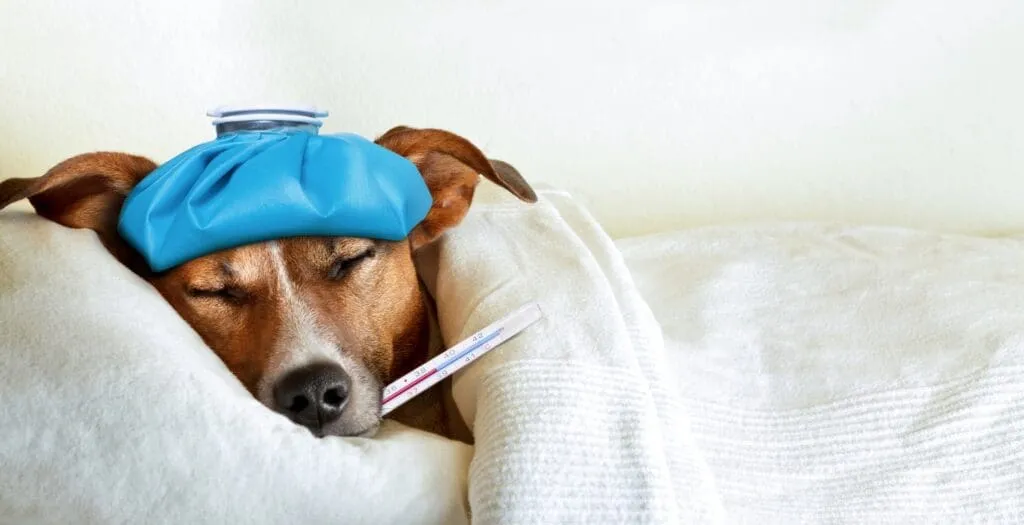Seasonal changes can be lovely, but they moreover bring unforeseen wellbeing dangers for your hairy companions. From the gnawing cold of winter to the taking off warm of summer, each season postures interesting challenges that can influence your pet's wellbeing.
How to protect your pet from seasonal diseases is basic for guaranteeing their bliss and well-being all year circular. Whether it's anticipating heatstroke in summer or guarding against respiratory diseases in winter, early anticipation is key.
Why Regular Changes Influence Pet Health

Fluctuations in temperature, mugginess, allergens, and natural conditions can affect your pet’s resistant framework. Here’s how:
Cold climate may lead to respiratory diseases, joint torment, or frostbite.
Hot climates increment the hazard of lack of hydration, heatstroke, and skin infections.
Rainy seasons bring parasites like ticks, insects, and mosquitoes.
Allergy seasons trigger irritated skin, watery eyes, and sneezing.
Understanding the regular illness cycle in pets makes a difference pet guardians remain one step ahead in keeping up year-round wellness.
Common Regular Illnesses in Pets
1. Insect and Tick Invasion (Spring/Summer)
Fleas and ticks flourish in warm, muggy situations. They can cause:
- Intense tingling and skin rashes
- Allergic dermatitis
- Lyme illness and tapeworms
Prevention Tip: Utilize vet-recommended insect collars, topical medications, or verbal pharmaceutical frequently amid crest seasons.
2. Canine Flu & Cat Upper Respiratory Contaminations (Winter/Fall)
Cold months are breeding grounds for infections, particularly in indoor spaces.
Symptoms include:
- Sneezing, nasal discharge
- Coughing, lethargy
- Fever and craving loss
Prevention Tip: Keep your pet’s environment warm and dry. Maintain a strategic distance from contact with wiped out creatures. Get them inoculated if recommended.
3. Heatstroke and Parchedness (Summer)
Rising temperatures can rapidly influence a pet’s inner temperature regulation.
Signs to observe for:
- Excessive panting
- Vomiting or diarrhea
- Weakness or collapse
Prevention Tip: Guarantee clean water get to, dodge mid-day strolls, and never take off pets in stopped vehicles.
4. Skin Hypersensitivities (Spring/Fall)
Pollen, tidy, and shape can trigger unfavorably susceptible responses in pets fair like humans.
Common symptoms:
- Excessive licking or chewing
- Red, aroused skin
- Hair misfortune or scabs
Prevention Tip: Bathe pets routinely with hypoallergenic shampoos and keep bedding allergen-free.
5. Leptospirosis (Monsoon/Rainy Season)
This bacterial illness spreads through sullied water and influences both pets and humans.
Symptoms include:
- Fever and muscle pain
- Vomiting and jaundice
- Kidney or liver damage
Prevention Tip: Dodge strolling pets in flood-prone regions and get them vaccinated.
How to Construct Your Pet’s Insusceptibility Naturally

A solid resistant framework is a pet's to begin with defense against regular contaminations. Boost it by:
- Feeding a adjusted eat less wealthy in vitamins, cancer prevention agents, and protein
- Adding supplements like Omega-3, probiotics, and safe boosters (as per vet advice)
- Regular work out and recess to diminish stress
- Adequate rest and rest for recuperation and energy
A solid pet is less likely to drop wiped out, no matter the season.
Seasonal Preparing Tips for Pets
Proper preparing goes past appearances; it’s crucial for infection prevention.
- Summer Pet Grooming:
- Trim hair to anticipate warm and fleas
- Bathe with cooling, cured shampoo
- Clean paws after walks
Winter Pet Grooming:
- Avoid visit showering to hold oils
- Moisturize paw cushions to anticipate cracking
- Use sweaters and booties if necessary
Rainy Season Pet Grooming:

- Keep hide dry to maintain a strategic distance from parasitic infections
- Use tick/flea repellent sprays
- Dry ears to avoid ear infections
Vaccinations and Preventive Care
Timely inoculations are your pet’s shield against dangerous diseases.
Key Immunizations Based on Season:
- Summer: Rabies, Leptospirosis
- Winter: Canine Flu, Distemper
- Rainy: Leptospirosis, Tick-borne diseases
Also consider normal deworming, yearly vet checkups, and parasite control as portion of your pet's schedule care.
Season-Specific Pet Care Essentials
For Summer:
- Cooling mats and fans
- Plenty of new water
- Early morning or late evening walks
For Winter:

- Cozy bedding and warming pads
- Insulated pet clothing
- Indoor play options
For Stormy Season:
- Waterproof jackets
- Quick-dry towels
- Indoor potty preparing pads
Keeping season-specific things helpful makes a difference keep up a solid pet environment.
Indoor vs Open air Pets: What Changes?
Outdoor pets are more uncovered to characteristic components and require additional vigilance.
Outdoor Pet Tips:
- Provide shaded and dry shelter
- Change bedding regularly
- Check for ticks/fleas daily
Indoor Pet Tips:
- Use discuss purifiers to decrease allergens
- Clean floors and pet bowls often
- Avoid sudden temperature changes with AC/heaters
Adapt your approach based on your pet’s lifestyle.
Expert Tips for Pet Owners
Here’s what veterinarians suggest to keep your pets disease-free:
Dr. Meera Sharma, DVM, says:
Seasonal changes can extremely affect your pet’s wellbeing. Continuously keep an eye out for early signs of sickness and don’t skip schedule wellbeing checks. Avoidance is continuously way better than cure.
Dr. Rakesh Patil, Pet Nutritionist, adds:
Good nourishment goes a long way in building resistance to diseases. Regular natural products, vegetables, and characteristic oils can work ponders when included in their diet.
Key Takeaways
- Seasonal changes can debilitate your pet’s resistance and increment illness risk.
- Preventive care like preparing, hydration, nourishment, and immunizations is essential.
- Identify indications early and look for veterinary offer assistance for speedier recovery.
- Tailor pet care based on climate conditions and living environment.
- Stay educated, remain arranged, and provide your pet the most beneficial life possible.
Conclusion
Your pet depends on you for consolation, security, and care. With each changing season, taking little preventive steps can secure them from avoidable sicknesses. Whether it’s protecting them from summer warm, winter chills, or blustery diseases, remaining educated and proactive guarantees your pet appreciates each season in great health.
Remember: A solid pet is a upbeat pet!
FAQs: How to Secure Your Pet from Regular Diseases
Q1: How can I tell if my pet is getting wiped out due to the weather?
A: Observe for sudden behavioral changes, craving misfortune, intemperate wheezing or hacking, and dormancy. Visit a vet if indications hold on past 48 hours.
Q2: Can I allow domestic cures for regular sensitivities in pets?
A: Mellow cases may react to oats showers or coconut oil, but continuously counsel a vet some time recently attempting domestic treatments.
Q3: Do indoor pets require parasite protection?
A: Yes. Insects and ticks can enter through windows, clothing, or other creatures. Indoor pets are not immune.
Q4: How regularly ought to pets visit the vet in changing seasons?
A: At slightest once each six months, or more as often as possible if the pet appears signs of stretch or regular sickness.